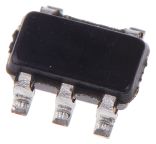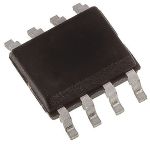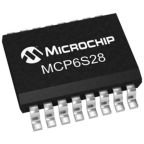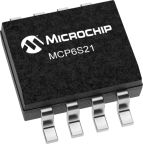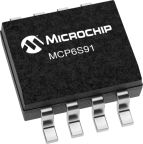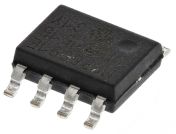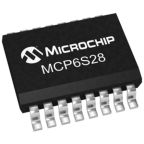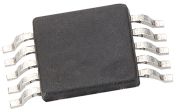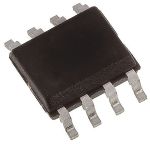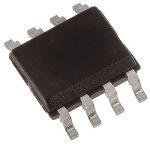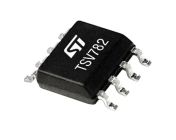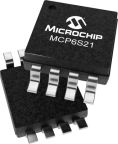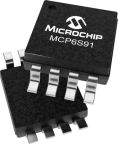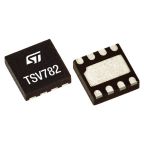Programmable Gain Amplifiers
Programmable gain amplifiers - or PGAs - are a type of electronic amplifier that allow you to control the gain in an electronic circuit (the ratio of output voltage, current or power to input) with digital signals. The gain can be set from less than 1 to over 100 volts.
What do programmable gain amplifiers do?
Programmable gain amplifiers work by increasing the power of a signal (a time-varying voltage or current) in your electronic circuit.
They use electric power from a power supply to increase the amplitude of a signal. The amount of amplification provided by the programmable gain amplifier is measured by its gain.
Applications for programmable gain amplifiers
Common applications for programmable gain amplifiers are motor control, signal and sensor conditioning, as well as in bar code readers and digital cameras. They can also be used for A/D converter driver applications, multiplexed analog applications, data acquisition, industrial instrumentation, test equipment and for use in medical instruments.
Related links
- PGA103U Texas Instruments 8-Pin SOIC
- PGA113AIDGST Texas Instruments Rail to Rail Output, 10-Pin VSSOP
- PGA112AIDGST Texas Instruments Rail to Rail Input/Output, 10-Pin MSOP
- MCP6S91-E/SN Microchip Rail to Rail Input/Output, 8-Pin SOIC
- MCP6S91-E/MS Microchip Rail to Rail Input 90dB, 8-Pin MSOP
- MCP6S22-I/SN Microchip Rail to Rail Input/Output, 8-Pin SOIC
- MCP6S21-I/SN Microchip Rail to Rail Input/Output, 8-Pin SOIC
- MCP6G01T-E/OT Microchip Rail to Rail Input/Output, 5-Pin SOT-23
